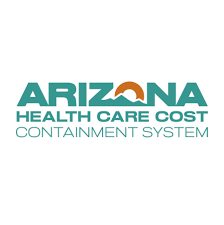The U.S. House of Representatives’ Energy and Commerce Committee just passed a budget bill along party lines (30-24) that proposes $715B in federal Medicaid spending cuts over the next decade.
While the bill includes several overt measures to reduce spending (and throw people off Medicaid), less conspicuous provisions in the bill and a separate CMS regulation change being proposed by Secretary Kennedy and CMS Administrator Oz poses a big threat to Medicaid coverage for hundreds of thousands of Arizonans.
Key Provisions Limiting Access to Care
The bill introduces several measures that could restrict or end access to care for millions:
- Altering and freezing ‘provider taxes’: Prohibits states from setting up any new provider taxes or increasing the rates of existing taxes. Revises how states can use ‘provider taxes’ to pay for the state part of Medicaid financing (this is super important in Arizona as we raise nearly $1B by assessing hospitals a fee to pay the state part to cover 600,000 Arizonans).
- Work Requirements: Starting January 1, 2029, Medicaid members aged 19-64 would be required to complete 80 hours of work or approved activities monthly to keep coverage. Note: AHCCCS is already about to start work or community engagement requirements for ‘able bodied adults’ pending Dr. Oz’ certain approval – see: AHCCCS Asks Permission to Implement Work Requirements & Five-Year Benefit Limit
- Increased Eligibility Redeterminations: The frequency of eligibility checks would double from once to twice a year, increasing administrative burdens and the likelihood of disenrollment due to procedural issues.
- Freezing Medicaid Provider Taxes: This provision would cap a key funding mechanism for states to increase provider payments. This freeze would effectively limit states’ ability to raise Medicaid reimbursement rates over the next decade, potentially impacting provider payments as healthcare costs rise.
- Defunding Planned Parenthood: The bill would block all Medicaid funding for Planned Parenthood, affecting access to preventive care, birth control, cancer screenings, and other services for Medicaid enrollees who rely on these clinics.
Kennedy’s “Improvised Explosive Device”: Changes to Provider Taxes
Beyond the legislative provisions, a separate proposal from HHS Secretary Kennedy aims to set a new statistical test to decide whether state-based fees (assessments) are acceptable to fund the state part of Medicaid. Their proposed rule change (this is over and above what congress is proposing) will use a new statistical ‘test’ to decide whether “non-uniform or non-broad-based” health care-related taxes are “generally redistributive.”
See Kennedy’s Proposed Rule Change for Hospital Assessments
In Arizona, the Medicaid program (AHCCCS) relies heavily on provider taxes to fund its share of Medicaid expansion costs (to the tune of $1B). If the new statistical test considers Arizona’s provider tax structure non-compliant, CMS could withdraw approval and end AHCCCS coverage for 600,000 Arizonans covered under Medicaid expansion – especially adults without dependents and those earning between 100% and 138% of the federal poverty level.
Note: Arizona assesses hospitals $682M to draw down $5.3B to cover the “prop 204 population” and overall assesses hospitals $1.5B to draw down over $8B in federal funds. Both Kennedy’s rule change (CMS) and the bill passed this week jeopardize both of those funding sources putting at risk the federal draw-down which would be absolutely catastrophic for AZ.
Conclusion
While the budget bill passed today by the Energy and Commerce Committee didn’t have the initial existential threat to AHCCCS in it: namely changing the formula for how much states need to pay for Medicaid (the FMAP rate) or per-capita caps, the less visible regulatory change regarding provider taxes poses a significant threat to Medicaid coverage in Arizona.
Secretary Kennedy’s independent plan to change the way they decide whether and how states can use a provider tax to pay the state part of Medicaid costs is the IED that could independently sink Arizona’s Medicaid ship and coverage for more than 600,000 Arizonans.
